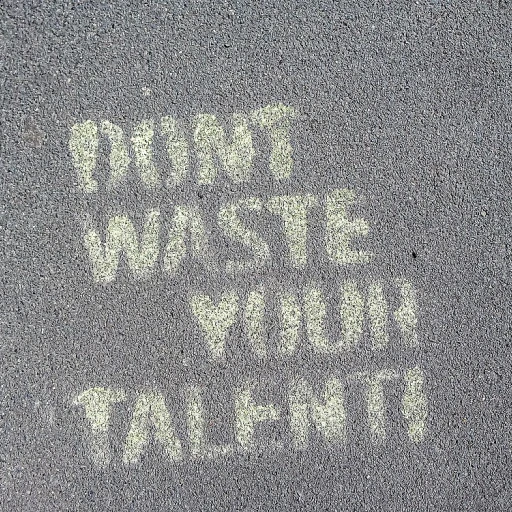Overview of Background Checks in HR
The Foundation of Workplace Screening
Understanding how background checks fit into human resources is crucial for both employers and applicants. These checks are an integral part of the hiring process, helping employers maintain a safe and trustworthy workplace environment. A well-conducted background check can give insights into an applicant's criminal history, convictions, and other critical records.
In the competitive landscape of recruitment, particularly when federal and state laws are at play, skipping this step could leave employers vulnerable. Risks include hiring individuals with undisclosed criminal records or overlooking important pending charges that could impact job performance or workplace safety.
The role of these checks in employment screening is not just about identifying a potentially harmful history; they are a tool in the broader talent acquisition strategy. For instance, different states have specific laws concerning what can be checked and how criminal records should appear on job applications. Employers need to navigate these waters carefully to avoid legal pitfalls.
In recent years, there’s been a shift in how background checks are viewed, influenced by various movements like "ban the box"—aimed at preventing employers from accessing certain parts of a candidate's history until later in the hiring process.
Alongside traditional checks, modern organizations are integrating innovative HR technologies to streamline and modernize investigations. From social media screenings to credit reporting and state police records checks, these advanced methods ensure no stone goes unturned. To establish a seamless process, crafting an effective
attendance policy template can play a crucial role in setting expectations for potential employees.
As the landscape of background screening evolves, understanding its nuances remains essential for aligning with legal standards and optimizing the hiring process.
Pending Charges: What They Are and Why They Matter
The Significance of Pending Charges in the Hiring Process
Pending charges play a pivotal role in the hiring processes of many organizations. They essentially refer to criminal charges that have been filed but not yet adjudicated in a court of law. This status implies that the individual has not been convicted of the crime in question, yet the charges are officially recorded and may appear during a background check.
Given the rise of comprehensive background checks in employment, applicants with pending charges often find themselves in a challenging position. For employers, these charges can spark concern about potential risks associated with hiring certain individuals, especially for positions that require a high level of trust and integrity.
Why do pending charges matter? For private employers and applicants alike, understanding the nuances of criminal background records is crucial. An unresolved charge does not equate to a conviction, yet its presence in criminal records raises questions about the individual's suitability for the job. This can lead to hesitation in extending a job offer, posing a dilemma in fair hiring practices.
The influence of pending charges is further compounded by differing state laws. Employment laws vary, and what is acceptable in one jurisdiction may not be permissible in another. Some states restrict the ability of employers to consider pending charges prior to a conviction, while others may allow it to factor heavily in the decision-making process.
As HR professionals and employers navigate these discussions, effective strategies and policies become essential. Resources like
crafting an effective attendance policy template can provide insights into creating fair and compliant hiring frameworks that accommodate both legal obligations and organizational needs. Understanding these intricate details can help streamline the hiring process and ensure equitable treatment for all applicants.
State-Specific Laws on Pending Charges
Unpacking State Laws and Their Impact on Pending Charges
When it comes to background checks and employment, understanding the nuances of state laws is crucial. These laws significantly influence how pending charges are treated during the hiring process. Given that each state can have different regulations, employers must be diligent about staying informed regarding the legal landscape of the states in which they operate.
In some states, for instance, employers may not be allowed to inquire or make employment decisions based solely on an applicant’s criminal history, including pending charges. The "ban the box" movement is one significant legislative development that limits employers from asking about criminal records on initial job applications.
- Varied State Policies:
- States prescribe diverse guidelines on whether pending charges can appear in a background check and how they should be used in decision-making.
- For instance, some states prohibit the use of pending charges in employment decisions until conviction occurs.
- Consideration for Federal Regulations:
- Employers must balance state-specific rules with federal laws like the Fair Credit Reporting Act (FCRA). This law mandates accurate reporting and informed consent for checks, affecting how criminal background data, including pending charges, is reported and managed.
- Potential Legal Consequences:
- Failing to adhere to state or federal regulations could result in legal challenges or disputes, highlighting the need for robust compliance mechanisms.
Understanding these regulations is vital not just for compliance, but also for maintaining fair hiring practices. Employers often partner with HR tech companies to ensure that criminal background checks are thorough, legal, and ethical. Moreover, as regulations evolve, keeping abreast of changes helps in implementing effective strategies and leveraging existing HR technologies. For an example of how employment law varies by state, read more about
at-will employment in Illinois.
Implications for Employers and HR Tech
Employers Navigating the Landscape of Pending Charges
For employers and HR tech platforms involved in the hiring process, understanding the implications of pending charges in background checks is crucial. Employers conducting background checks on potential hires must balance the fine line between ensuring workplace safety and respecting the legal rights of applicants.
Private employers often integrate criminal background checks into their hiring processes to gather insights into an applicant's history. When pending charges appear in a background check, the challenge lies in interpreting these records accurately. Unlike convictions, pending charges haven't been adjudicated, and applicants are presumed innocent until proven guilty. Therefore, thorough evaluation and cautious consideration are necessary.
Some states have adopted 'ban the box' laws preventing employers from inquiring about criminal records early in the job application process. These laws aim to provide a fairer chance for applicants with pending charges or a criminal record to be judged based on their qualifications and merit before their background history is considered. In states where these laws are enacted, employers need to be compliant, ensuring that they are not inadvertently discriminating against individuals with criminal records.
Technology plays an increasingly significant role in the process, offering automated solutions for background checks while maintaining compliance with various state and federal regulations. As state laws on pending charges differ, it's imperative for employers to stay informed about local legislation governing background checks and criminal records. Consulting with legal counsel or HR experts specializing in state-specific laws can assist employers in navigating these complexities.
Employers must also be mindful of ethical considerations and the societal impact of their hiring decisions related to pending charges. While some may view pending charges as red flags, others argue that employers should focus on the applicant's skills and qualifications rather than their criminal background or ongoing legal matters.
Ultimately, employers and HR tech innovators should aim to strike a balance that fosters a fair employment process, respects applicants' legal rights, and aligns with state-specific regulations.
Challenges in Compliance and Implementation
Challenges in Laws Compliance and Implementation
Navigating the intricate landscape of background checks, particularly concerning pending charges, poses significant challenges for employers and HR professionals. These challenges lie not only in understanding the federal and state-specific laws but also in effectively implementing compliant background check processes.
One major hurdle is the variability of state laws on pending charges and background checks. Each state has its own set of regulations regarding what criminal history information can be accessed and used during the hiring process. This inconsistency requires employers to stay informed and meticulously update their protocols to ensure compliance with the law in each state they operate.
Moreover, the complexity increases as employers must balance federal laws, such as the Fair Credit Reporting Act (FCRA), that dictate how credit reporting agencies can share criminal records. Employers must ensure that the data received respects the rights of all applicants, highlighting the importance of a refined check strategy.
Another pressing issue is the integration of criminal records information into HR tech solutions. Employers are often faced with the task of updating these systems to reflect the latest changes in legislation. They must ensure that their background check processes do not inadvertently discriminate against applicants due to pending charges, which could lead to potential legal repercussions.
Also, employing the "ban the box" initiative, aimed at removing criminal history questions from initial job applications, is another implementation challenge. Employers must carefully design hiring processes that comply with this policy while still assessing the suitability of candidates through a thorough background check later in the hiring process.
In conclusion, the challenge for employers and HR professionals lies in navigating the patchwork of state laws alongside federal regulations. Maintaining compliance while ensuring a fair, efficient hiring process requires a strategic approach and constant vigilance in adapting tech solutions for effective implementation.
Future Trends in Background Check Regulations
Future Considerations for Background Check Regulations
When looking ahead at the future trends of background check regulations, one can observe a growing emphasis on balancing security concerns with the rights of applicants. The evolution of these regulations involves various factors and could have substantial effects on both employers and applicants, particularly in the context of criminal records and pending charges.
As state-specific laws continue to be refined and federal guidelines develop, the burden on private employers to remain informed and compliant becomes increasingly significant. Technology will play an essential role in aiding companies to navigate the complexities of these laws. Implementing robust HR tech solutions will ensure employers can keep pace with changes and ensure that they're adhering to the latest compliance requirements when conducting background checks or assessing an applicant's criminal history.
Moreover, emerging regulations might focus more on limiting the use of certain information, such as pending charges or specific types of convictions, within employment decisions. This change could potentially affect the hiring process, as employers may need to reassess what constitutes a fair assessment of an applicant's background and how past criminal records appear during background checks.
Additionally, the ways in which information is sourced and interpreted might progress. For example, social media checks are becoming more prevalent, posing new questions about privacy and what constitutes valid information for background checks.
The trend of "ban the box" initiatives, which restrict questions about criminal records during the initial stages of the employment process, continues to grow. This initiative aims to provide applicants a fairer chance at employment by allowing them to showcase their qualifications before a criminal background is checked.
In conclusion, as legislation evolves and new technologies emerge, employers must strive to keep up-to-date with compliance standards related to background checks and criminal records. The intersection of human resources tech and evolving laws will inevitably shape the future landscape of employment checks.














